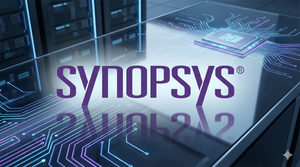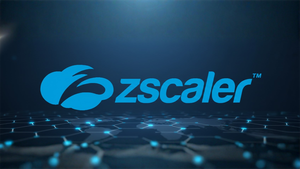
San Jose, CA – November 4, 2025 – In a move poised to send ripples through both the semiconductor and cryptocurrency markets, Sequans Communications S.A. (NYSE: SQNS), a leading fabless semiconductor company specializing in 4G/5G cellular IoT, announced today the strategic sale of 970 Bitcoin (BTC) from its treasury. The significant divestment, valued at an undisclosed sum at the time of sale, is explicitly aimed at redeeming 50% of the company's outstanding convertible debt, effectively slashing its financial liabilities and fortifying its balance sheet.
This decisive action by Sequans represents a bold evolution in corporate treasury management, moving beyond the passive accumulation of digital assets to their active deployment as a strategic financial tool. Occurring on November 4, 2025, this event underscores a growing trend among technology firms to diversify asset holdings and leverage alternative investments, particularly cryptocurrencies, to achieve critical financial objectives like debt reduction and enhanced shareholder value.
Strategic Deleveraging: A Deep Dive into Sequans' Bitcoin Gambit
Sequans Communications’ decision to liquidate a substantial portion of its Bitcoin reserves is a meticulously calculated financial maneuver. The sale of 970 BTC has enabled the company to redeem half of its convertible debt, reducing the total obligation from a formidable $189 million to a more manageable $94.5 million. This aggressive deleveraging strategy has had an immediate and positive impact on Sequans' financial health, improving its debt-to-Net Asset Value (NAV) ratio from 55% to a leaner 39%. Furthermore, this reduction in debt has reportedly freed the company from certain restrictive debt covenant constraints, granting it greater strategic flexibility in its future operations and investment decisions.
Georges Karam, CEO of Sequans, characterized the transaction as a "tactical decision aimed at unlocking shareholder value given current market conditions," while reiterating the company's enduring conviction in Bitcoin as a long-term asset. Prior to this sale, Sequans held 3,234 BTC, and its remaining Bitcoin reserves now stand at 2,264 BTC, indicating a continued, albeit adjusted, commitment to the cryptocurrency as a treasury asset. This approach distinguishes Sequans from companies that primarily view Bitcoin as a static inflation hedge or a simple long-term hold; instead, it showcases a dynamic treasury strategy where digital assets are actively managed and deployed to address specific financial challenges.
Unlike previous corporate forays into Bitcoin, which often focused on accumulation as a hedge against inflation or a pure growth play, Sequans has demonstrated a willingness to monetize these assets for immediate and tangible benefits. This active management of a cryptocurrency treasury for debt reduction is a relatively novel application, marking a significant departure from more conventional corporate finance strategies and highlighting the increasing sophistication with which some public companies are approaching digital asset integration.
Reshaping the Tech Landscape: Implications for AI, Semiconductors, and Startups
Sequans Communications' strategic Bitcoin sale carries significant implications across the technology sector, particularly for semiconductor companies, AI innovators, and startups navigating complex financial landscapes. Companies facing substantial debt loads or seeking to optimize their balance sheets stand to benefit from this precedent. The successful execution of such a strategy by Sequans (NYSE: SQNS) could inspire other semiconductor firms, particularly those in capital-intensive sectors, to explore similar avenues for financial agility.
The competitive landscape for major AI labs and tech giants could also see subtle shifts. While larger entities like NVIDIA (NASDAQ: NVDA) or Intel (NASDAQ: INTC) might have more diversified and traditional treasury operations, the success of Sequans' move could prompt them to re-evaluate the potential of integrating dynamic digital asset management into their financial strategies. This isn't about replacing traditional assets but augmenting them with tools that offer new avenues for liquidity and debt management, potentially disrupting existing financial planning models.
For startups and emerging tech companies, especially those in the AI space that often require significant upfront investment and accrue debt, Sequans' case study offers a novel blueprint for financial resilience. The ability to leverage alternative assets for debt reduction could provide a critical lifeline or a competitive advantage in securing funding and managing early-stage liabilities. Furthermore, this trend could spur innovation in financial services tailored to digital asset management for corporations, benefiting fintech startups and specialized crypto service providers. The strategic positioning of companies that can effectively integrate and manage both traditional and digital assets could become a new differentiator in attracting investors and talent.
Broader Significance: Crypto's Evolving Role in Corporate Finance
Sequans' Bitcoin sale is more than just a company-specific event; it's a powerful indicator of the broader maturation of cryptocurrencies within the corporate finance world. This action solidifies Bitcoin's transition from a speculative investment to a legitimate, strategically deployable treasury asset, capable of impacting a company's core financial structure. It fits into a wider trend where companies are seeking to diversify beyond traditional cash holdings, often in response to macroeconomic concerns like inflation and currency devaluation.
The impact of this move is multifaceted. It challenges the conventional wisdom surrounding corporate treasury management, suggesting that digital assets can be a source of active capital rather than just a passive store of value. While companies like MicroStrategy (NASDAQ: MSTR) have pioneered the accumulation of Bitcoin as a primary treasury reserve to hedge against inflation and generate long-term growth, Sequans demonstrates the inverse: the strategic liquidation of these assets for immediate financial benefit. This highlights the dual utility of cryptocurrencies in corporate portfolios – both as a long-term investment and a tactical financial tool.
Potential concerns, however, remain. The inherent volatility of cryptocurrencies still poses a significant risk, as rapid price fluctuations could turn a strategic advantage into a liability. Regulatory uncertainty also continues to loom, with evolving accounting standards (like the recent FASB changes requiring fair value accounting for digital assets) adding layers of complexity to corporate reporting. Comparisons to previous AI milestones, while not directly analogous, underscore the continuous innovation in the tech sector, extending beyond product development to financial strategy. Just as AI breakthroughs reshape industries, novel financial approaches like Sequans' can redefine how tech companies manage their capital and risk.
The Road Ahead: Dynamic Digital Asset Management
Looking ahead, Sequans Communications' bold move is likely to catalyze further exploration into dynamic digital asset management within corporate finance. In the near term, we can expect other companies, particularly those in the semiconductor and broader tech sectors, to closely scrutinize Sequans' strategy and potentially emulate similar approaches to debt reduction or balance sheet optimization. This could lead to a more active and sophisticated use of cryptocurrencies beyond simple buy-and-hold strategies.
Potential applications and use cases on the horizon include leveraging digital assets for more flexible capital expenditure, M&A activities, or even as collateral for innovative financing structures. As the regulatory landscape matures and accounting standards become clearer, the operational risks associated with managing these assets may diminish, making them more attractive for mainstream corporate adoption. However, significant challenges still need to be addressed. Managing the extreme volatility of cryptocurrencies will remain paramount, requiring robust risk management frameworks and sophisticated hedging strategies.
Experts predict a continued evolution in how corporate treasuries interact with digital assets. Financial analysts anticipate a growing interest in specialized financial products and services that facilitate corporate crypto management, hedging, and strategic deployment. The emergence of spot Bitcoin and Ether ETFs has already simplified access to crypto exposure, and this trend of integration with traditional finance is expected to continue. The long-term vision suggests a future where digital assets are seamlessly integrated into corporate financial planning, offering unparalleled flexibility and new avenues for value creation, provided companies can effectively navigate the inherent risks.
A New Chapter in Corporate Finance: Sequans' Enduring Legacy
Sequans Communications' strategic Bitcoin sale marks a pivotal moment in the intersection of traditional industry and digital finance. The key takeaway is clear: cryptocurrencies are evolving beyond mere speculative investments to become powerful, active tools in a company's financial arsenal. Sequans' decisive action to redeem 50% of its convertible debt by leveraging its Bitcoin holdings demonstrates a proactive and innovative approach to balance sheet management, setting a new benchmark for corporate financial strategy.
This development holds significant importance in the annals of corporate finance, illustrating how a technology company, deeply embedded in the semiconductor industry, can harness the power of digital assets for tangible, immediate financial benefits. It underscores a growing willingness among public companies to challenge conventional treasury management practices and embrace alternative asset classes for strategic advantage.
In the coming weeks and months, the market will undoubtedly watch closely for further developments. Will other semiconductor companies or tech giants follow suit, adopting more dynamic crypto treasury management strategies? How will regulators respond to this evolving landscape, and what impact will increased corporate participation have on the stability and maturity of the cryptocurrency markets themselves? Sequans Communications has not just sold Bitcoin; it has opened a new chapter in how corporations perceive and utilize digital assets, solidifying their role as integral components of modern financial strategy.
This content is intended for informational purposes only and represents analysis of current AI developments.
TokenRing AI delivers enterprise-grade solutions for multi-agent AI workflow orchestration, AI-powered development tools, and seamless remote collaboration platforms.
For more information, visit https://www.tokenring.ai/.





